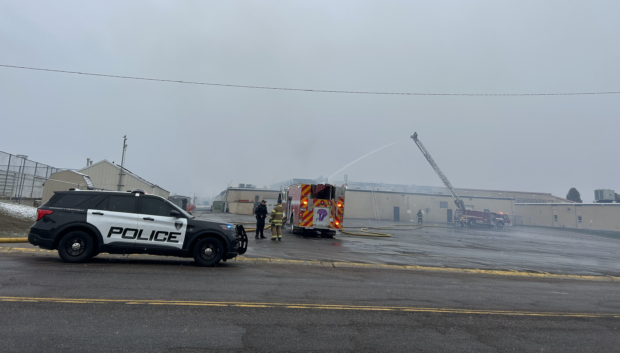Ironically, the Pocatello/Chubbuck School District is hoping its $33 million bond ask, which will appear on the May ballot, will fail.
That’s because school leaders no longer need the money. Gov. Brad Little recently signed into law two facilities bills that will assure the district gets a projected $43 million this year for building needs.
But none of that was certain two weeks ago, when trustees were up against a deadline to make a decision about running a bond. Three trustees, concerned about whether the funding would come through at all or in time, voted to keep the election intact.
Fast forward to now, and events have unfolded in their favor.
“Now that HB 521 is law we can add clarity for our community members and say, ‘thank you,’ but we are not asking community members to vote for the bond anymore,” said Deanna Judy, the board chair, in a press release. “The funding provided by HB 521 will fulfill our purpose to rebuild Highland High School.”

The bulk of the incoming $43 million will be used to rebuild and improve the school, which was partially destroyed in an April 2023 fire. The district’s insurer is also expected to contribute about $25 million to the project.
“This groundbreaking legislation represents a crucial step to rebuild and revitalize Highland’s storied campus, offering a lifeline to the community without resorting to additional taxpayer burden through a bond measure,” the district’s spokesperson, Courtney Fisher, wrote in a press release.

HB 521, considered a blockbuster school facilities and tax relief bill, will allocate $2 billion to Idaho schools for facilities needs over the next 10 years — $1.5 billion of which is new spending. Legislators hope the bill will reduce the amount of school funding elections, and translate to decreased property taxes for Idahoans. In this case, that’s what’s happening.
“In the unlikely event the bond passes, the District would forego selling the bonds,” Fisher wrote. “The District will also forego spending any money to educate the public about the bond election.”
In Idaho, bonds require a two-thirds supermajority to pass — one of the strictest approval thresholds in the nation. Partly because of that, bonds in Idaho are more likely to fail than pass. Case in point: Pocatello’s first attempt to shore up funding for the Highland rebuild via a bond ask in November failed with 56% approval.
The facilities bill — which became this session’s “centerpiece” legislation, and which Fisher called “a paradigm shift in educational funding and community support” — provides some relief for districts scrabbling to maintain and build schools.
Pocatello trustees plan to use $31-$33 million for Highland’s rebuild, which will include adding and improving science classrooms, constructing an auditorium, and replacing and improving the school’s gymnasium and activity space. Trustees will consider using the remaining $11-$12 million for projects on their long-term facilities to-do list, called a Capital Improvements Plan in education parlance.
Nearly a year after the fire struck, trustees finally have the funding to begin a new chapter for Highland High.
“The unprecedented challenge to restore one of our community’s cherished high schools is now one-step closer,” Fisher wrote.
